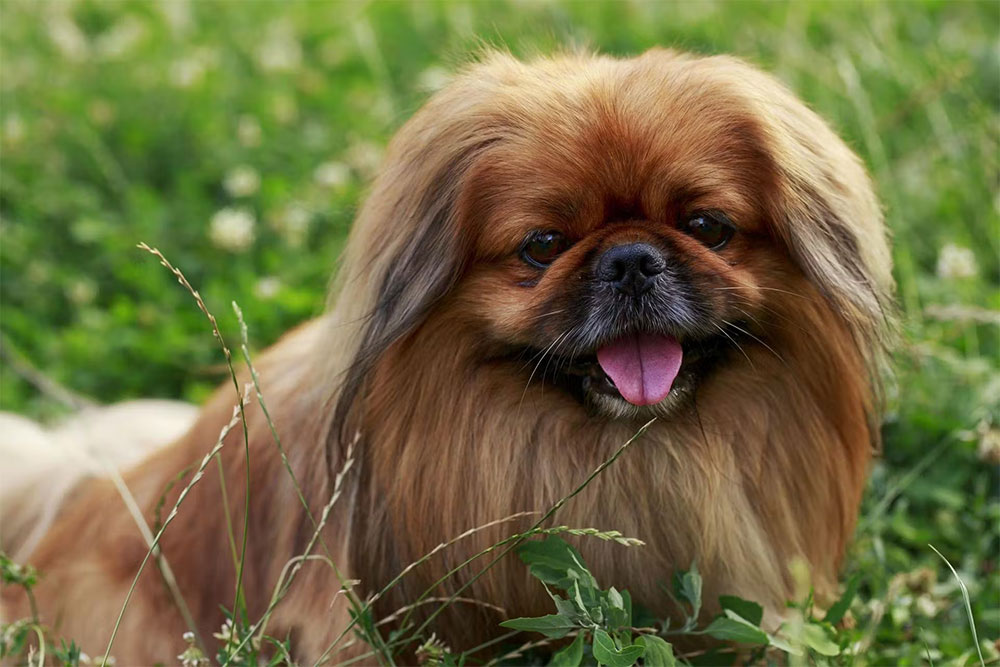Pekingese are small, but extremely loyal and charismatic dogs with ancient royal roots. Their appearance, behavior and aristocratic charm make this breed one of the most popular among ornamental dog owners.
How long do Pekingese live?
Usually the lifespan of a Pekingese is 12 to 15 years, which is quite a long time for a small breed dog. At the same time, life expectancy is affected by many factors, including health, nutrition, physical activity and housing conditions. There are known cases when the dwarf Pekingese lived to be 16-18 years old thanks to proper care and timely treatment. It is worth noting that the Royal Pekingese may have other care features, as this breed is known for its susceptibility to certain genetic diseases.
How to prolong the life of a Pekingese at home
In order to prolong the life of a Pekingese as much as possible, it is important to follow several basic care rules:
- Provide a balanced diet. It is important to choose food that corresponds to the dog’s age, weight and activity level. High-quality feed with a minimum amount of artificial additives helps strengthen immunity and prevent diseases.
- Regular visits to the veterinarian. Pekingese are prone to some diseases of the eyes, respiratory system and joints. It is recommended to carry out regular examinations in order to detect possible problems in time.
- Hygienic care. Pekingese have a thick coat that requires regular brushing, as well as dental and eye care. Brushing your teeth will help avoid gum problems and bad breath.
- Observance of the daily regime. Regularity in eating, walking and resting will help to avoid stress that can negatively affect the dog’s health.
What affects the life expectancy of Pekingese
The life of a Pekingese is influenced by several main factors:
- Genetics. Hereditary diseases and susceptibility to certain diseases can shorten a dog’s lifespan.
- Nutrition. Improper nutrition can lead to digestive problems, obesity and other diseases.
- Physical activity. Pekingese need a moderate level of physical activity to keep their muscles and cardiovascular system in good shape.
- Habitat. A calm and cozy environment contributes to a long life, since Pekingese are sensitive to stress and sudden changes in everyday life.
Effect of physical activity on life expectancy of Pekingese
Physical activity is an important part of a Pekingese’s life, but excessive exercise can be harmful for this breed. Pekingese have a short skull, which makes it difficult to breathe, especially during high physical exertion or during heat. With this in mind, it is important to provide the dog with:
- daily short walks;
- active games that do not require excessive physical effort;
- possibility of resting in the shade or in a cool place, especially in summer.
Moderate activity helps maintain an optimal weight, which is very important, because obesity can cause additional stress on the joints and heart of a Pekingese.
Signs of Pekinese old age
Like all animals, Pekingese begin to show signs of aging with age. Among the main symptoms of old age:
- decrease in activity and increased fatigue;
- decrease in visual acuity and hearing;
- changes in appetite and need for water;
- graying of fur, especially on the face;
- appearance of health problems such as arthritis, breathing or heart problems.
To make life easier for an elderly Pekingese, it is important to provide comfortable living conditions, adjust nutrition and provide more attention and care.
Following the recommendations, the owners will be able to create all the conditions for a long, healthy and happy life for their pet.




